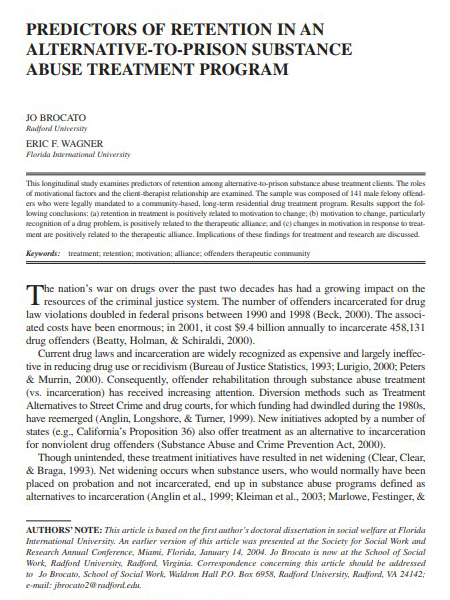Predictors of retention in an alternative-to-prison substance abuse treatment program
 Abstract: This longitudinal study examines predictors of retention among alternative-to-prison substance abuse treatment clients. The roles of motivational factors and the client-therapist relationship are examined. The sample was composed of 141 male felony offenders who were legally mandated to a community-based, long-term residential drug treatment program. Results support the following conclusions: (a) retention in treatment is positively related to motivation to change; (b) motivation to change, particularly recognition of a drug problem, is positively related to the therapeutic alliance; and (c) changes in motivation in response to treatment are positively related to the therapeutic alliance. Implications of these findings for treatment and research are discussed.
Abstract: This longitudinal study examines predictors of retention among alternative-to-prison substance abuse treatment clients. The roles of motivational factors and the client-therapist relationship are examined. The sample was composed of 141 male felony offenders who were legally mandated to a community-based, long-term residential drug treatment program. Results support the following conclusions: (a) retention in treatment is positively related to motivation to change; (b) motivation to change, particularly recognition of a drug problem, is positively related to the therapeutic alliance; and (c) changes in motivation in response to treatment are positively related to the therapeutic alliance. Implications of these findings for treatment and research are discussed.
Brocato, J., & Wagner, E.F. (2008). Predictors of retention in an alternative-to-prison substance abuse treatment program. Criminal Justice and Behavior, 35(1), 99-119. doi:10.25148/etd.fi14051844
